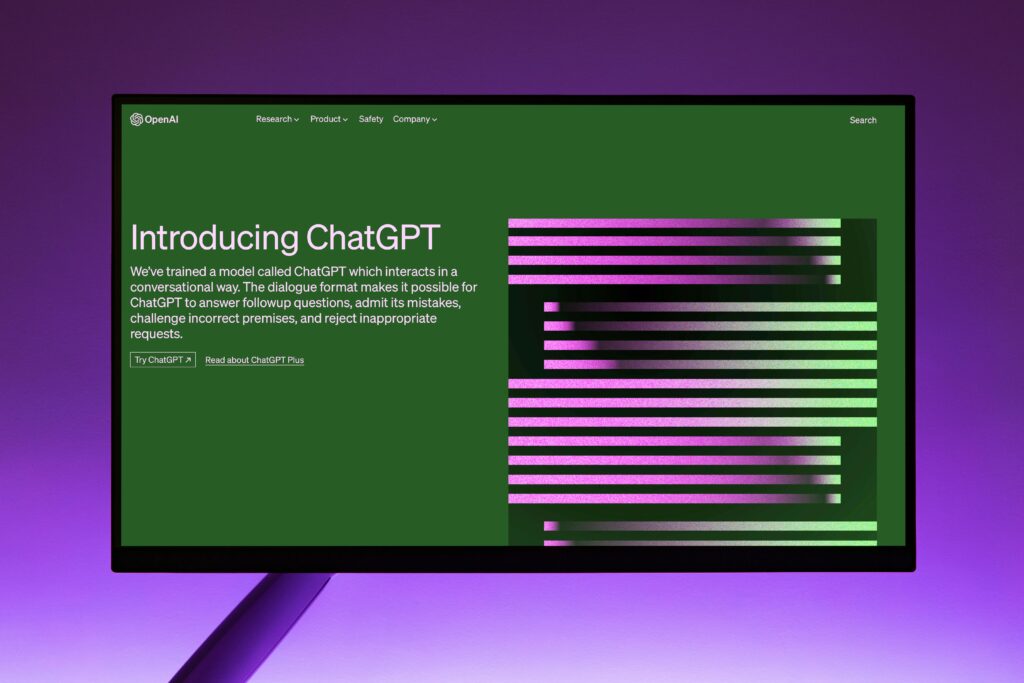If you have found this article, chances are you are a writer, or you have hired a writer for your company. A very common topic right now for writers and people who use writers is the development of AI content. As a full-time freelance writer, I am no stranger to the risks associated with AI content and, in relation to that, AI checkers.
With AI-generated content becoming more and more common, the prevalence of AI checkers is also rising as more options are becoming available online. Although this may seem like a good thing on the surface, false positives are becoming more common as well, leading to even more issues.
In this article, we will be discussing the basis of AI content detection, how these checkers work, and why you might be seeing false positives.
Why Is AI-Generated Content Bad?
I will be the first person to tell you that I don’t like AI technology in any form. I think that it is a tool that may have some benefits, but it is mostly just going to cause a lot of problems for a lot of people. As a freelance writer, I have already had many instances where AI got in the way of my work, not just by taking work opportunities away but also instilling distrust in people.
Many people are very wary of AI-generated content because they have heard bad things about it. You may think that it is going to tank your website but the good news about AI is that it is much more widely accepted by Google now. Google is not going to automatically flag AI content like it used to as long as it is high-quality.
However, the danger of AI content is that it is often not very high-quality depending on where it is coming from. If it is heavily edited by a human writer then it may very well turn out to be a good article.
Without going into too much detail about why I find AI content to be bad, here are some examples of why I would never use it:
- Lacks a human voice
- Repetitive in style and phrasing
- Poor quality writing and choppy style
- Potential for inaccurate or outdated information
- Lack of proper sourcing
How Do AI Checkers Work?
Now that my little rant about why I don’t like artificial intelligent writing is over, let’s get to the nitty-gritty of AI checkers. These checkers use technology that is still relatively new as it has become popular only because artificial intelligence technology has become more prevalent. Because it is still relatively new, this means that there is a lot of work that needs to be done before these checkers are truly accurate.
One of the biggest problems with AI-generated writing is that it has become common practice for people to put articles into AI checkers to make sure they are not AI. Although this is not a bad step to take when you are paying for content, you cannot blindly trust these checkers. Every AI checker technology is slightly different and will look at different things to identify what is AI and what isn’t.
Here are some examples of common things AI checkers will look for:
- Style of writing: A common way of checking for artificial intelligence writing is by looking at the style and how the article is written. Articles that are more technical or professional tend to get ranked as being AI more frequently since they come across as impersonal and structured.
- Structuring: Some checkers will also look at the structure of the article to see if it imitates a very generic AI structure. For instance, an article may have a false positive if you conclude the article with the word conclusion since this is a very generic heading.
- Fluff and repetition: Most checkers will scan articles for generic fluff, as AI generators will commonly repeat phrases or even full sentences throughout the article. This repetition goes even further, as checkers can flag articles that have repetitive words or similar sentence structures.

Factors That Can Result in False AI Content Positives
Whether you are a writer or someone who has paid for written content, the dangers of false positives are substantial. In fact, this has become a very common risk with those in college since professors are now checking articles to make sure they are human written. False positives are bad for everyone since it hurts authentic writers, reduces writing work, and instills distrust.
Here are some factors that could contribute to a false positive depending on the situation.
Industry
Something that isn’t talked about very much in terms of false AI content positives is the industry being written for. I write primarily right in the healthcare and legal fields, both of which are very professional and straightforward. Because of this, I have sometimes found myself having an issue with false positives simply because of the tone of voice.
More technical industries tend to prefer straightforward and businesslike content that is not incredibly personal. This can easily be misread as being artificial intelligence generated, especially since you will usually be writing in the second person. Technical terms and lingo can also be falsely read as being AI-generated since artificial intelligence writing will often incorporate more technical terms in the writing.
Editing Tools
Another thing that isn’t as commonly recognized as it should be is that most editing tools are now using some form of AI technology. I, along with thousands of other freelance writers, rely on editing tools such as Grammarly to check for things like punctuation. Grammarly uses AI technology to help you check your work for your grammar mistakes, which can result in your work receiving a false positive.
Writing Style
We often compare AI writing to human writing, but this doesn’t make a lot of sense. Human writers were here long before artificial intelligence, so it doesn’t seem fair that we now say human writers sound like artificial intelligence generators. If an article sounds like it may be AI-generated, that may come down to personal writing style in some situations.
Some writers are much more curt in their style and have a very direct approach when they are writing. As we mentioned above, this can be industry specific but it can also have something to do with the type of topic, such as whether it is an academic or educational article.
Skip the AI and Hire a Real Person to Write Your Content!
The main thing to remember about that artificial intelligence checking technology is that you cannot blindly trust it just the same way that you cannot blindly trust AI-generators to create a good article. These tools are technology, and as we all know, technology is not dependable.
If you are a business professional in the legal, healthcare, or pet care industry and you want content that is 100% human, get in touch! I am an SEO freelance writer, and I never use AI generators to do my work for me, so you are always guaranteed high-quality and educational content!



